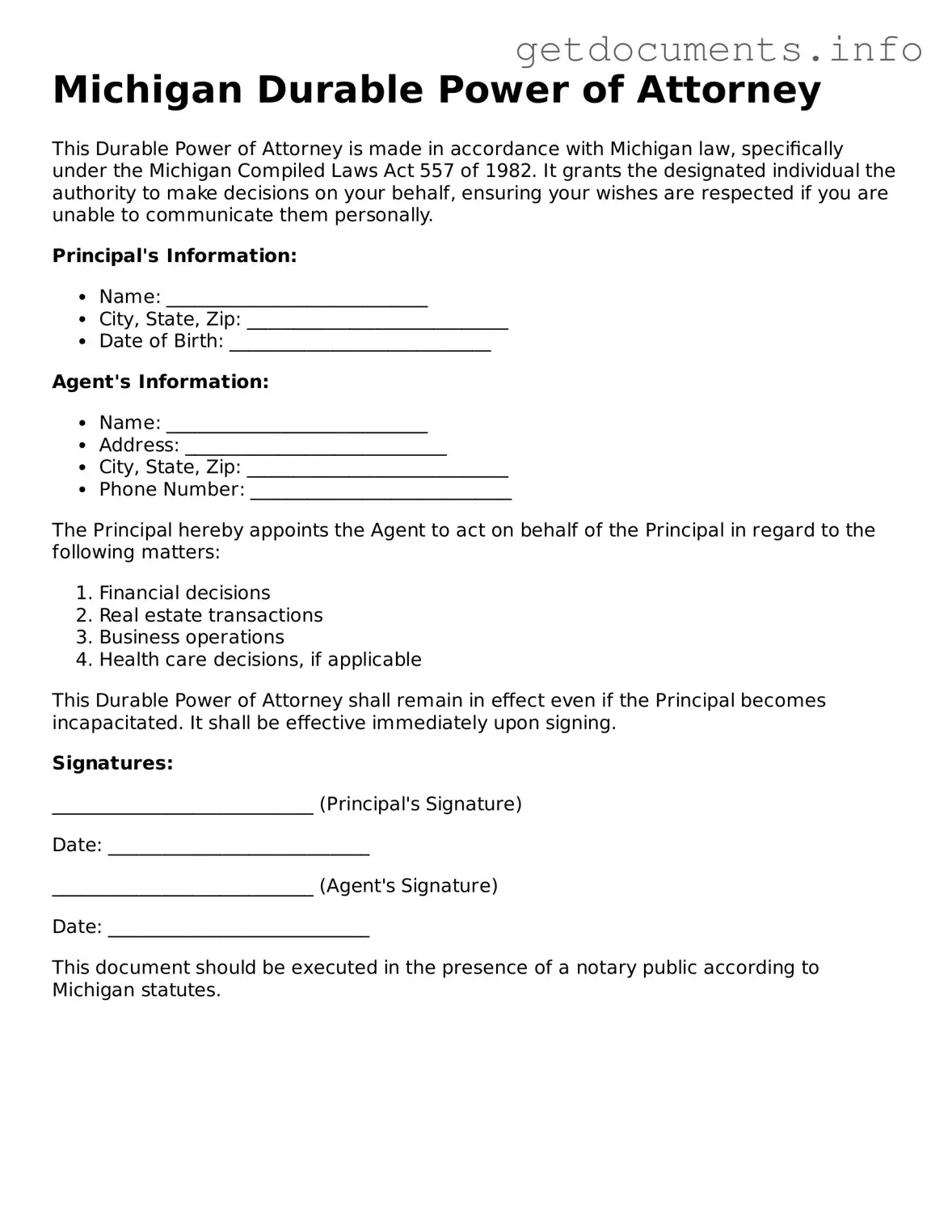Free Durable Power of Attorney Template for Michigan
A Michigan Durable Power of Attorney form allows an individual to designate someone else to make financial and legal decisions on their behalf, even if they become incapacitated. This legal document ensures that your wishes are honored and that your affairs are managed according to your preferences. To get started with this important form, click the button below.
Access Durable Power of Attorney Editor

Free Durable Power of Attorney Template for Michigan
Access Durable Power of Attorney Editor
Got places to be? Complete the form fast
Fill out Durable Power of Attorney online and avoid printing or scanning.
Access Durable Power of Attorney Editor
or
⇩ PDF File
